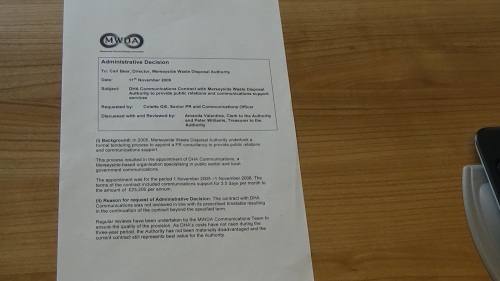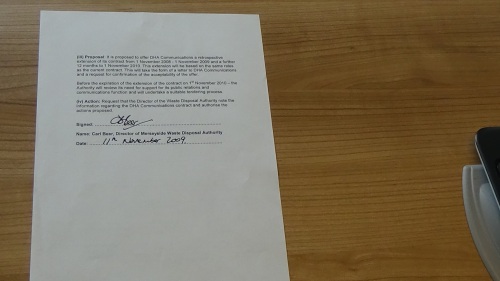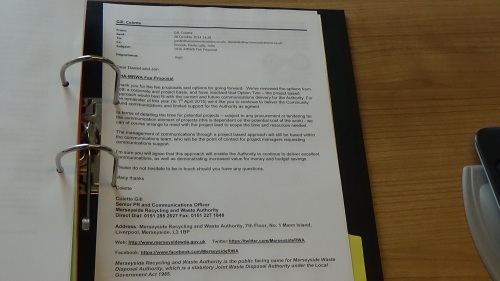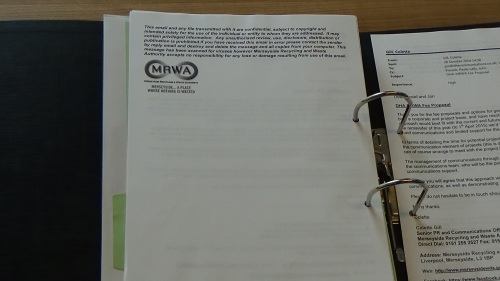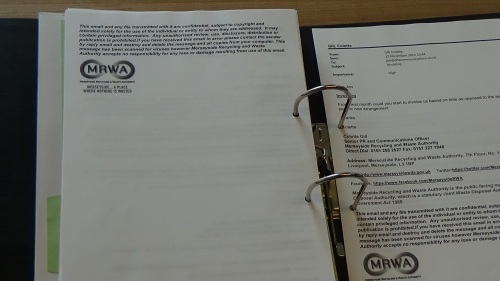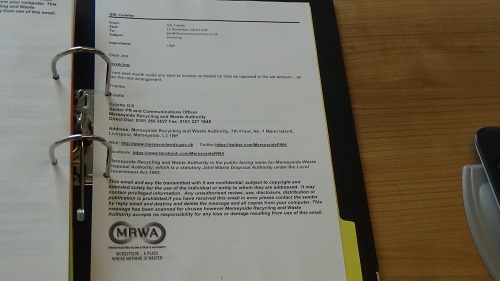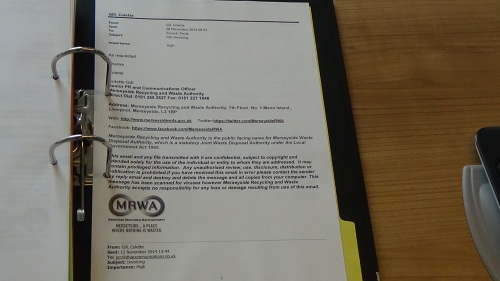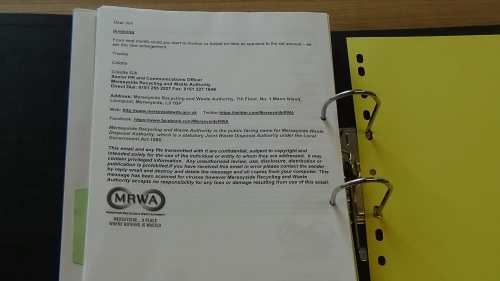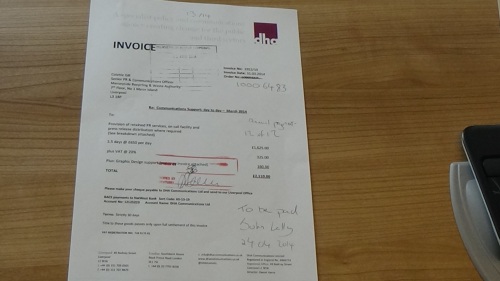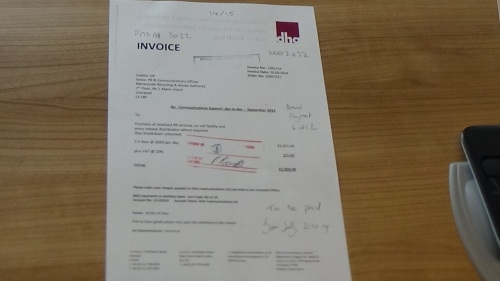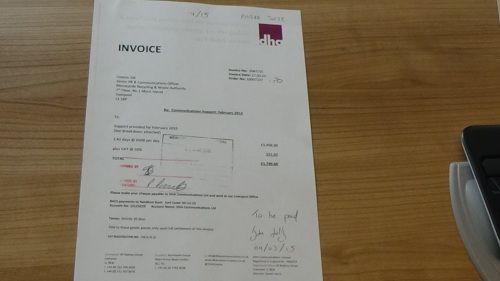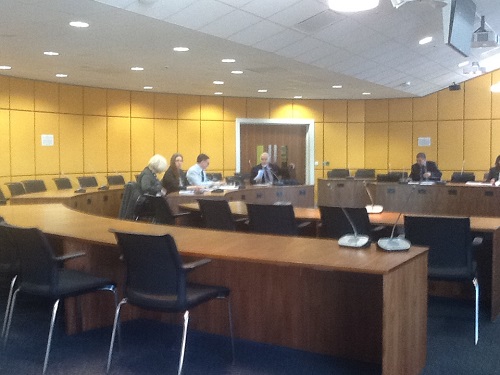What was in the “strictly confidential” report on Merseyside Recycling and Waste Authority that cost over £14,000?
Last year Merseyside Waste and Recycling Authority paid Paver Smith (a PR agency which has since changed its name to Influential) £11,700 + VAT for 18 days work (at a rate of £650 + VAT) for an internal and external communications review. You can see the invoice for that work below.
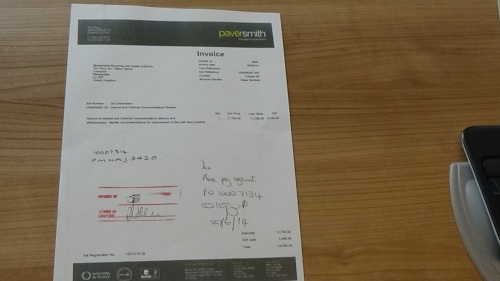
The internal communication review involved ‘discovery’ sessions with MRWA staff, an online questionnaire and focus groups. Below is the internal communications bit of the report (with my comments under each page).

This is just the cover page for the report.
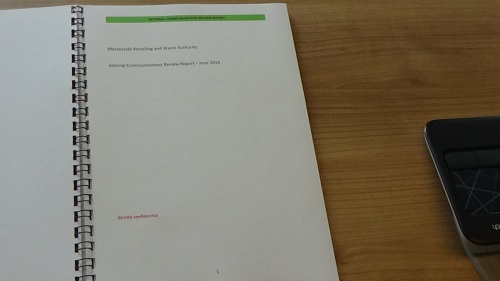
This report is “strictly confidential”. Why do I know this? Why I know because this page tells me so in red letters.

This is a contents page.

A whole page on “introductory remarks” that contains a lot of phrases such as:
“employees and management must communicate in order for an organisation to function effectively”,
“there is real value in staff being clear on and understanding the forward mission and objectives of MWRA” and “Staff also carry an organisation’s brand out to the market, with clients, stakeholders and the public. Having them “on message” and carrying a unified and coordinated message can have great benefits”.
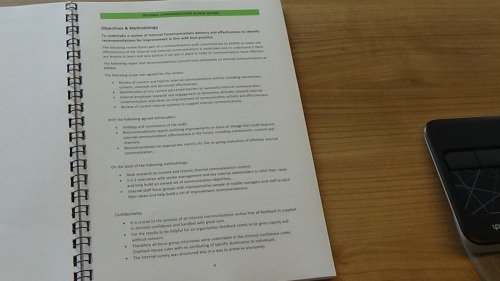
This page deals with “Objectives and methodology” including this section on confidentiality:
- It is crucial to the process on an internal communications review that all feedback is supplied in strictest confidence and handled with great care.
- For the results to be helpful for an organisation feedback needs to be given openly and without concern.
- Therefore all focus group interviews were undertaken in the strictest confidence under Chatham House rules with no attributing of specific statements to individuals.
- The internal survey was structured also in a way to preserve anonymity.

This next page goes into detail about the three focus groups (Executive Management Team, Senior Management Team and Authority officers).
One of the more interesting comments on this page is “A common theme raised by all was the concern that MRWA had a “silo” culture where individual teams largely operated independently from each other and as a result there was little cross fertilisation or understanding what each team was working on/ looking to achieve.”
A comment like that probably makes you think that Merseyside Recycling and Waste Authority is a large organisation with lots of staff, however the staff structure on their website shows they have only about three dozen staff.

This page has the rather telling comment at the top (EMT stands for Executive Management Team) “There was a staff perception that the EMT didn’t wish to engage in two way communication and discussion.” followed by “All expressed a concern that the intranet was used passively to disseminate information that staff were then assumed to seek out, but that active use of the intranet was however very low.”
Then it moves on to themes from the Executive Management Team focus group. Here are some quotes from that focus group:
“Concern was express that some of the staff had unrealistic expectations as to what they should be communicated to about.”
and
“The intranet was raised as a tool that wasn’t effective and not proactively used to access information.”
The senior management focus group also commented on the intranet and the silo culture.
“It was felt by some that too much reliance was placed on people proactively seeking out information on the intranet and that generally people didn’t do this. “
“A major concern for this group was what was described as a “silo” culture in MRWA with individual teams and functions working in isolation from each other and not enough interaction nor understanding of each other’s objectives, activity, challenges and successes. “
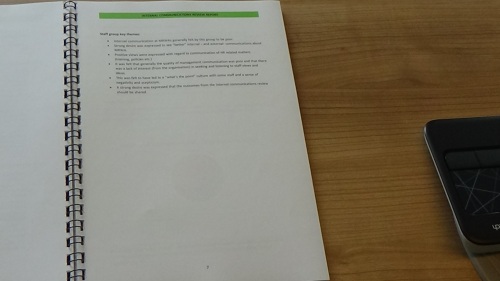
The staff focus group found internal communications was “poor”, apart from HR related matters. This focus group also felt “that generally the quality of management communication was poor and that there was a lack of interest (from the organisation) in seeking and listening to staff’s views and ideas.”.
Also commented on by the staff focus group was that this had led to a “‘what’s the point’ culture with some staff and a sense of negativity and scepticism”. The staff group expressed a “strong desire that the outcomes from the internal communications review should be shared”.

This page deals with the results of the questionnaire, there’s a pretty even split between people who think internal communications are poor and those that think it is satisfactory.

This is another page going into the results of the survey and has the line “Good internal communications are seen generally by staff as of crucial importance to their sense of satisfaction and general wellbeing an an employee.”
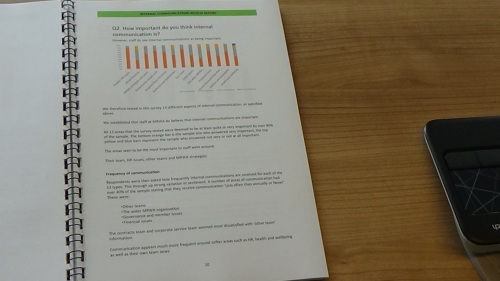
This page details the results to the question “How important do you think internal communication is?”.

This page is about the frequency of internal communications and information that people should receive monthly.
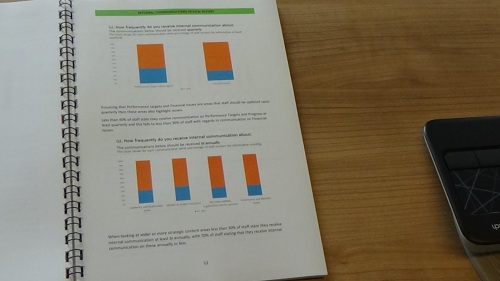
This page is about the frequency of internal communications and information that people should receive quarterly or bi-annually.
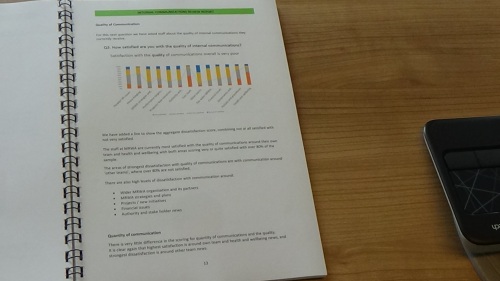
This page is about the quality of internal communication.
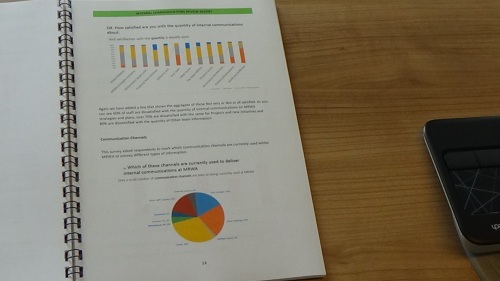
This page is about satisfaction with the quality of internal communication and how it happens.
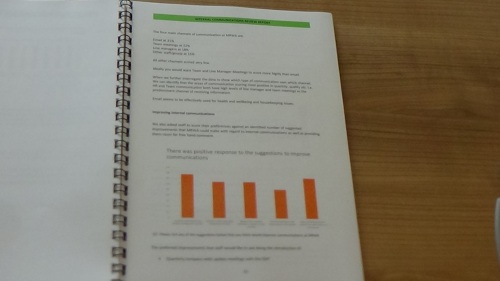
This page deals with improving internal communications.

This page deals with verbatim comments on how to improve internal communications.

This page states expands on the heading “treat all equal” which is clarified as meaning “Reduce the secret meetings and promote total inclusion”.

This page starts the recommendations, the first four are for the Executive Management Team (abbreviated to EMT).

This page has two more general recommendations on content of internal communications.

This page has recommendations on the channel used for communication.

This page suggests that positive external PR news should be circulated internally to staff.
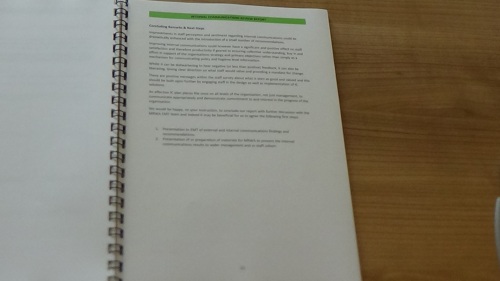
Finally, in the concluding remarks and next steps it recommends that the reports findings and recommendations are presented to the Executive Management Team and to the wider management and staff cohort.
If you click on any of the buttons below, you’ll be doing me a favour by sharing this article with other people.


